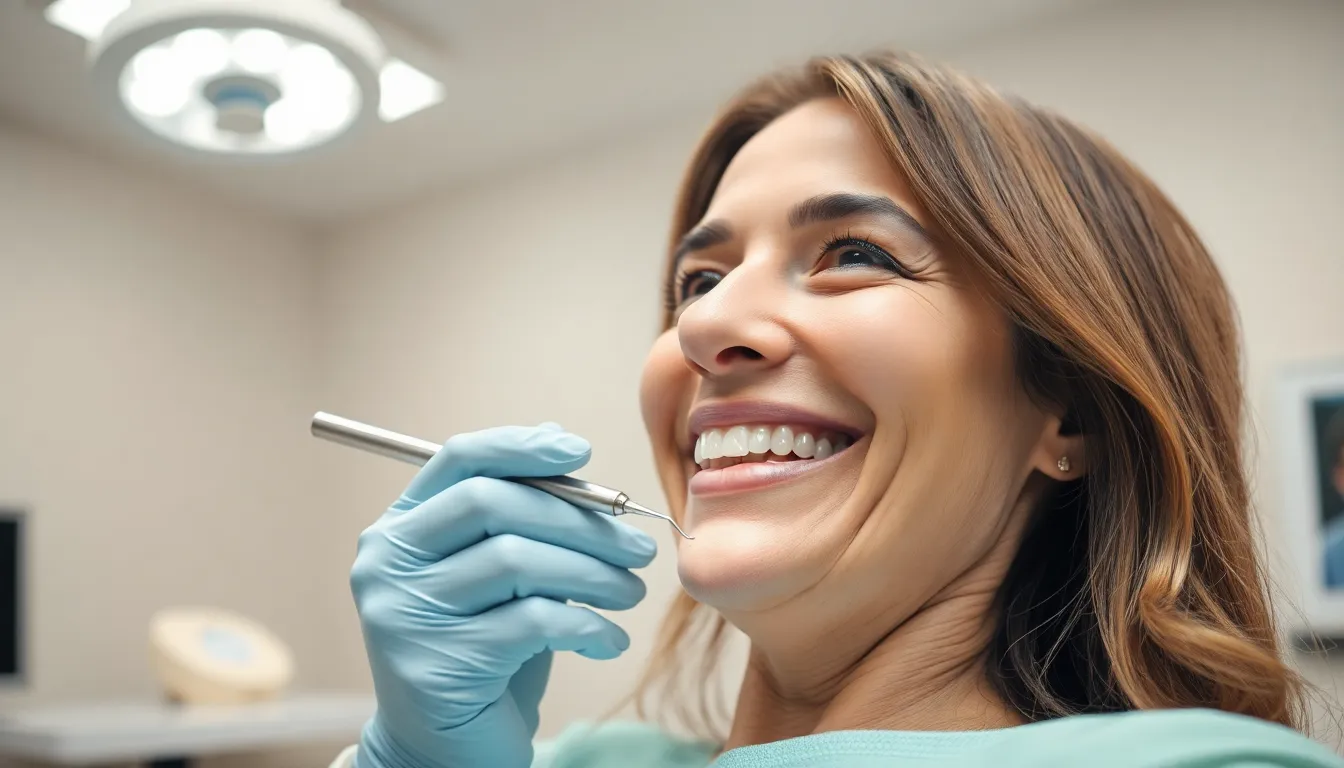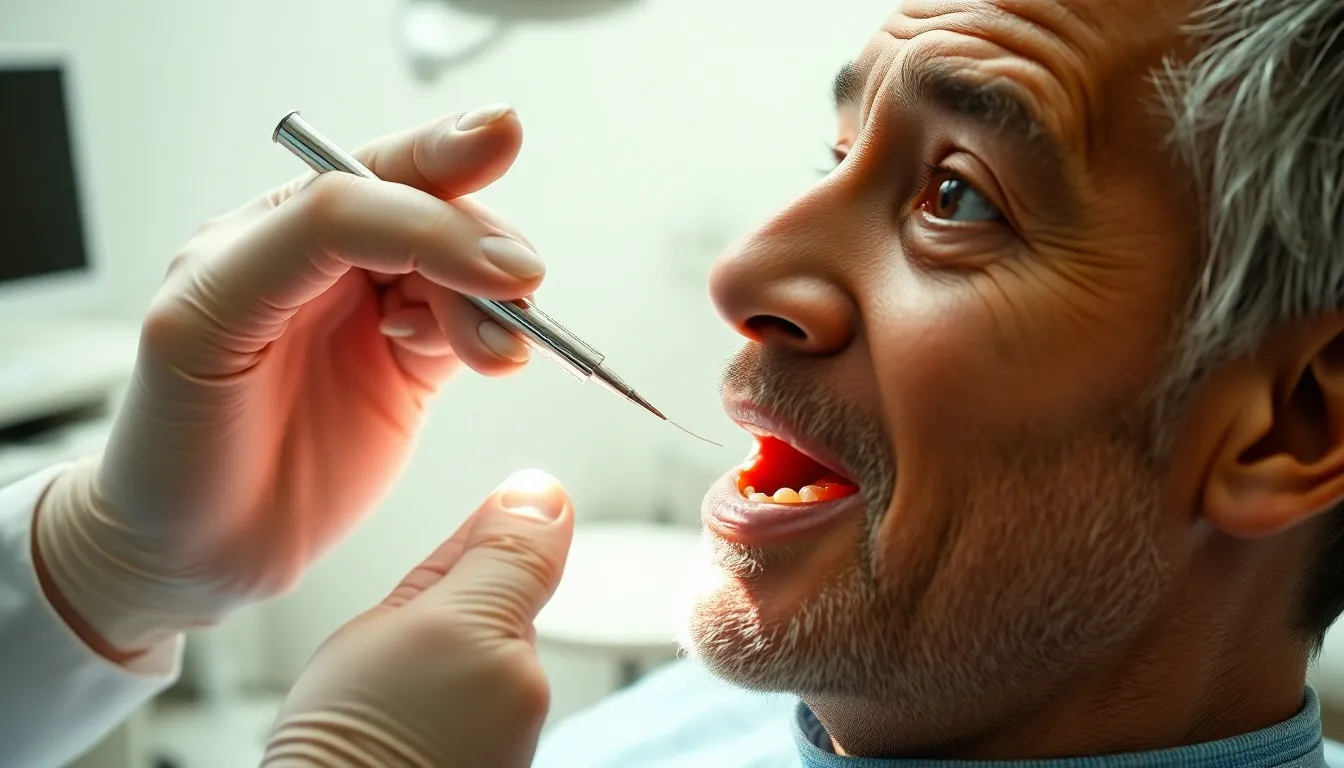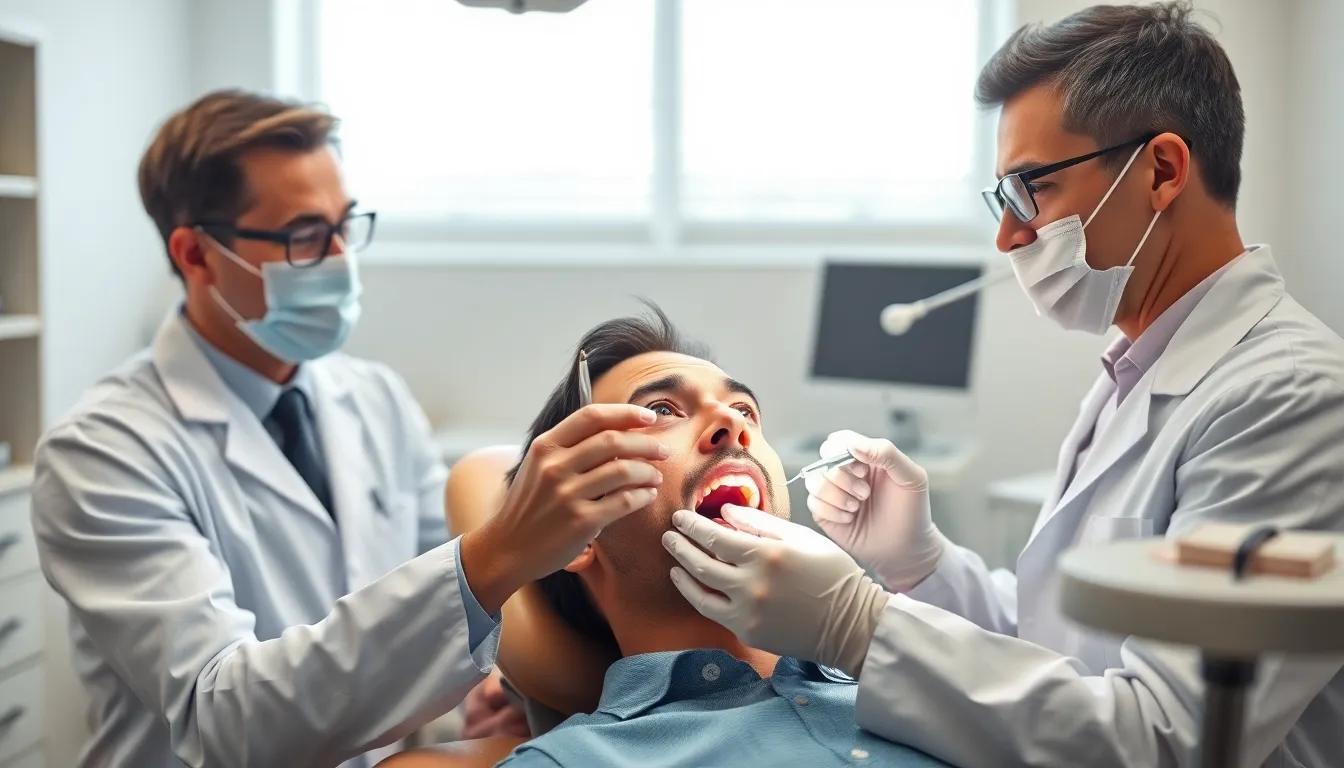Considering teeth reshaping to enhance your smile? This quick, painless cosmetic procedure can transform your appearance by subtly altering the shape, length, or surface of your teeth. Whether you’re looking to fix minor imperfections or create a more harmonious smile, teeth reshaping might be the solution you’ve been searching for.
Teeth reshaping, also known as dental contouring, offers a conservative approach to smile enhancement without the need for extensive dental work. It’s perfect for addressing slightly overlapping teeth, small chips, uneven tooth lengths, or pointed canines. Unlike many cosmetic procedures, teeth reshaping can often be completed in just one visit, making it an attractive option for those seeking immediate results without important recovery time.
What Is Teeth Reshaping?
Teeth reshaping, also known as dental contouring, is a cosmetic dental procedure that involves removing small amounts of tooth enamel to change a tooth’s shape, length, or surface. This minimally invasive technique modifies teeth by sculpting and polishing exact areas to improve their appearance.
Common Dental Issues Addressed by Reshaping
Dental reshaping effectively corrects several common tooth imperfections without requiring extensive treatments. Slightly overlapping teeth can be contoured to create a more aligned appearance, instantly improving your smile’s symmetry. Small chips from minor accidents often respond well to reshaping, as your dentist carefully smooths rough edges to restore the tooth’s natural contour.
Uneven tooth lengths, which can make your smile look imbalanced, are easily adjusted through precise enamel removal. Pointed canines, sometimes called “vampire teeth,” can be gently rounded to blend more harmoniously with surrounding teeth. Rough or pitted surfaces on teeth benefit from polishing during the contouring process, creating a smoother, more reflective surface.
The Teeth Reshaping Procedure Explained

Teeth reshaping involves the selective removal of tooth enamel using specialized dental tools to create a more harmonious smile. This cosmetic procedure effectively addresses minor imperfections by carefully sculpting the teeth’s outer layer to improve their appearance and alignment.
What to Expect During Your Appointment
Your teeth reshaping appointment typically lasts 30-60 minutes and requires just one visit to complete the entire procedure. First, your dentist examines your teeth thoroughly, possibly taking X-rays to confirm your enamel thickness and overall tooth health before proceeding. The actual contouring process involves precise removal of small amounts of enamel using specialized drills or lasers to smooth uneven edges, correct slight overlaps, or fix minor chips. Throughout this process, you’ll feel minimal discomfort as enamel contains no nerve endings, though you might notice some vibration or slight pressure. The final step includes polishing your reshaped teeth to create a natural, glossy finish that enhances your smile’s overall appearance.
Dr. Harris often shares, “Many of my patients are surprised by how quick and comfortable the reshaping process actually is. I had one patient, Sarah, who was extremely nervous about dental procedures but couldn’t believe it when we finished her contouring in under 45 minutes with zero pain.”
Pain Management and Recovery
Recovery from teeth reshaping is immediate and typically pain-free since the procedure only affects the enamel layer. You can resume normal activities right after leaving the dental office without any downtime. Some patients experience mild sensitivity to temperature for a few days following the procedure, particularly when consuming hot or cold foods and beverages. This sensitivity generally resolves on its own within a short period as your teeth adjust to their new contours.
For optimal protection of your newly shaped teeth, avoid biting into hard or crunchy foods for the first few days. Maintaining excellent oral hygiene becomes even more important after reshaping since the enamel is slightly thinner in the modified areas. Regular dental check-ups ensure your reshaped teeth remain in optimal condition and allow your dentist to address any concerns promptly.
Benefits of Teeth Reshaping

Teeth reshaping offers multiple advantages that go beyond mere aesthetics. This cosmetic dental procedure removes small amounts of tooth enamel to enhance both appearance and function, delivering important improvements with minimal intervention.
Cosmetic Improvements
Teeth reshaping creates a uniform, attractive smile by correcting minor imperfections like uneven edges, small chips, cracks, or slightly overlapping teeth. Your confidence naturally increases when these subtle flaws are eliminated, leading to more comfortable social interactions. The non-invasive nature of this procedure makes it particularly appealing, as most treatments are completed in just one dental appointment without surgery or extensive recovery time.
Results from teeth reshaping appear completely natural because the dentist works with your existing tooth structure, refining the natural contours to create a flawless appearance. Dr. Todd B. Harris often notes, “Many of my patients are amazed by how such subtle changes to their tooth enamel can dramatically transform their entire smile without requiring more extensive interventions like veneers or braces.”
Functional Advantages
Teeth reshaping improves bite alignment by carefully adjusting tooth surfaces that may cause improper contact. These modifications can alleviate bite problems, reduce jaw pain, and prevent further tooth damage often associated with misaligned teeth. Oral hygiene becomes easier following reshaping because smoothed edges and eliminated overlaps create fewer hiding places for plaque and bacteria.
The risk of several oral health issues decreases significantly after reshaping. Patients experience reduced chances of bruxism, TMJ disorders, tooth sensitivity, and eventual tooth loss. One patient, Sarah, shared, “After my teeth reshaping procedure, I noticed I wasn’t waking up with jaw pain anymore. The dentist explained that fixing the slight overlap between my front teeth had actually improved my bite alignment.”
Enhanced quality of life represents perhaps the most profound benefit of teeth reshaping. Physical improvements combine with psychological benefits as patients report feeling less self-conscious about their smile. Communication becomes more natural, and many patients find themselves smiling more frequently in both professional and personal settings.
Comparing Teeth Reshaping to Other Dental Procedures

Teeth reshaping offers a unique approach to smile enhancement that differs significantly from other cosmetic dental procedures. Understanding these differences helps you choose the most appropriate treatment for your exact dental concerns and aesthetic goals.
Teeth Reshaping vs. Veneers
Teeth reshaping involves minimal enamel removal to subtly adjust your tooth’s shape or surface, making it considerably less invasive than alternative treatments. Veneers, by contrast, are thin shells of porcelain or composite resin that cover the entire front surface of teeth, requiring more extensive preparation of the tooth structure. Many patients appreciate reshaping for minor imperfections because it preserves most of your natural tooth structure while still delivering noticeable improvements.
The cost difference between these procedures is substantial—teeth reshaping typically costs $50-300 per tooth, while veneers range from $925-2,500 per tooth. Time commitment also varies dramatically; reshaping delivers immediate results in a single 30-60 minute appointment, whereas veneers require at least two visits spaced weeks apart. For addressing discoloration or major shape alterations, veneers provide more dramatic transformations, but reshaping excels at correcting small chips, uneven edges, and minor alignment issues.
Teeth Reshaping vs. Bonding
Teeth reshaping removes small amounts of enamel to improve tooth shape through smoothing or shortening, focusing on subtracting material for aesthetic improvement. Dental bonding takes the opposite approach by adding composite resin material to repair chips, close gaps, or build up worn areas. These complementary techniques often work together—dentists frequently combine reshaping to adjust the tooth form with bonding to fill or add structure for optimal aesthetic results.
Bonding addresses larger defects like important chips or gaps between teeth, while reshaping creates subtle contours and refinements. Both procedures share similar advantages: they’re completed quickly (usually in one visit), require minimal or no anesthesia, and cost significantly less than more invasive options. The key distinction lies in their approach—bonding builds up your tooth structure with added materials, while reshaping sculpts your existing tooth to create a more harmonious appearance.
Cost of Teeth Reshaping

Teeth reshaping offers a cost-effective solution for improving your smile compared to more extensive cosmetic dental procedures. The price varies based on several factors including the complexity of work needed and your dentist’s expertise.
The typical cost of teeth reshaping ranges from $50 to $300 per tooth, making it one of the more affordable cosmetic dental procedures available. Nationally, patients pay an average of $215 per tooth for contouring services. Your final cost depends on multiple factors including how much reshaping is required, which teeth need treatment, and your geographic location.
More extensive work that combines reshaping with dental bonding increases the price to between $300 and $600 per tooth. For comparison, veneers—another popular cosmetic option—cost significantly more at $800 to $2,500 per tooth.
Insurance Coverage for Teeth Reshaping
Most dental insurance plans don’t cover teeth reshaping since it’s classified as a cosmetic procedure rather than a medically necessary treatment. Insurance providers typically limit their coverage to procedures that treat or prevent oral diseases, leaving purely aesthetic enhancements to be paid out of pocket.
“I had minor overlapping on my front teeth that always bothered me in photos,” shares Maria, one of Dr. Harris’s patients. “After learning insurance wouldn’t cover the reshaping, I was initially disappointed, but the relatively low cost made it possible to proceed anyway. The confidence boost was absolutely worth the investment.”
Several payment alternatives exist for patients seeking more affordable options. Dental schools offer supervised care by dental students at significantly reduced rates. Many dental practices provide payment plans that allow you to spread the cost over several months without interest. Clinical trials occasionally seek participants for new dental treatment methods, potentially offering free or discounted services.
Ideal Candidates for Teeth Reshaping

Teeth reshaping works best for individuals with minor dental imperfections that don’t require extensive correction. You’re an excellent candidate if you have small chips, slight overlaps, uneven teeth, minor cracks, or sharp edges that need smoothing. These subtle flaws respond well to the gentle contouring process that removes minimal enamel to create a more harmonious smile.
Your oral health plays a crucial role in determining eligibility for this procedure. Candidates must have healthy teeth and gums without decay, active infections, or periodontal disease. The structural integrity of your teeth and surrounding tissues needs to be robust enough to safely undergo enamel removal without compromising tooth strength.
Enamel thickness represents another important consideration for teeth reshaping suitability. Your dentist will evaluate whether you have sufficient enamel to allow for safe reshaping without weakening your teeth. X-rays often help determine if your enamel thickness can accommodate the procedure while maintaining dental health.
Patients seeking teeth reshaping typically don’t have major dental problems requiring more comprehensive answers. Severe misalignment, extensive decay, large chips, or important structural issues disqualify most individuals from this procedure. Such conditions generally require orthodontics, veneers, crowns, or other more intensive treatments.
Many of our patients choose teeth reshaping because they want a conservative, affordable option for improving their smile. Dr. Harris recalls, “One of my patients, Sarah, came in frustrated with a small chip on her front tooth that made her self-conscious during presentations. We completed a simple reshaping procedure in 30 minutes, and she left with renewed confidence—all without breaking her budget or disrupting her busy schedule.”
Teeth reshaping offers a quick, painless solution that delivers immediate results for those with minor cosmetic concerns. The procedure appeals to people who prefer avoiding extensive dental work while still achieving noticeable smile improvements. With costs typically ranging from $50-$300 per tooth, it’s considerably more affordable than alternatives like veneers or extensive orthodontic treatment.
Potential Risks and Limitations
Risks of Teeth Reshaping
Teeth reshaping involves permanent enamel removal that can’t be reversed once completed. Your teeth may experience increased sensitivity to hot and cold temperatures after the procedure due to the thinning of enamel layers. Excessive enamel removal potentially weakens tooth structure, making your teeth more susceptible to cracks or fractures over time. Reduced enamel thickness creates vulnerability to cavities and infections, as this protective layer no longer shields the tooth effectively.
Dr. Todd B. Harris notes, “While teeth reshaping provides excellent cosmetic improvements for many patients, I always ensure they understand that enamel doesn’t regenerate. We’re careful to remove only the minimum necessary to achieve the desired results while preserving tooth integrity.”
Patients with existing dental issues face additional concerns. Teeth reshaping isn’t appropriate for everyone, particularly those with decayed teeth, gum disease, infected pulp, or already compromised tooth strength. A comprehensive dental examination determines if you’re a suitable candidate for the procedure.
Limitations to Consider
Teeth reshaping delivers subtle aesthetic improvements rather than dramatic transformations. The procedure addresses only minor imperfections by smoothing and contouring teeth surfaces. Major cosmetic changes typically require alternative treatments like veneers or orthodontics.
The surface-only nature of teeth reshaping means it can’t correct underlying structural problems or important alignment issues. Many patients need combination treatments for optimal results, as reshaping alone might not achieve their desired outcome. Dental professionals often recommend pairing reshaping with bonding techniques to address more complex cosmetic concerns.
One patient, Sarah M., shared her experience: “I initially wanted teeth reshaping to fix my crooked front teeth completely. My dentist explained its limitations and suggested combining reshaping with bonding. Understanding these constraints helped me set realistic expectations and I’m very satisfied with my improved smile.”
The effects of teeth reshaping might not be as long-lasting as other dental restorations. Since the procedure can only remove limited enamel and makes minor changes, the improvements may be more temporary compared to more comprehensive treatments like crowns or veneers.
Maintaining Your Reshaped Teeth
After investing in teeth reshaping, proper maintenance ensures your enhanced smile lasts for years to come. Regular care protects the thinned enamel and preserves the aesthetic improvements you’ve achieved through the procedure. Dental professionals recommend several key practices to maintain your newly contoured teeth.
Daily Oral Hygiene Practices
Brush your teeth twice daily using a soft-bristled toothbrush and fluoride toothpaste to protect your reshaped enamel. Floss at least once daily to remove plaque from between teeth where reshaping may have altered the contact points. Consider using an alcohol-free mouthwash to further protect your enamel without causing sensitivity. Electric toothbrushes often provide superior cleaning around newly contoured areas, reaching spots that might be missed with manual brushing.
“One of my patients had her canines reshaped to appear less pointed,” shares Dr. Todd B. Harris. “She’s maintained perfect results for over five years simply by following a consistent oral hygiene routine and attending her regular check-ups.”
Foods and Habits to Avoid
Avoid biting on hard objects like ice, pen caps, or fingernails that can damage your reshaped teeth. Limit consumption of acidic foods and beverages such as citrus fruits, sodas, and sports drinks that can erode the thinned enamel. Staining agents including coffee, tea, red wine, and tobacco products can discolor teeth, particularly if bonding resin was applied during your reshaping procedure. Cut back on sugary snacks and drinks that increase the risk of decay in areas where enamel has been removed.
Regular Dental Check-ups
Schedule dental examinations every six months to monitor the condition of your reshaped teeth. Professional cleanings help prevent plaque buildup that can be more problematic on thinned enamel surfaces. Your dentist can polish any rough spots that develop on the reshaped areas before they cause irritation. X-rays during check-ups allow for early detection of potential issues with the reshaped teeth.
Special Considerations for Bonded Teeth
Clean bonded areas with non-abrasive toothpaste to prevent scratching the resin material. Avoid using whitening products on bonded teeth as they won’t lighten the bonding material and can create color mismatches. Replace any damaged bonding promptly to protect the underlying tooth structure from decay. Bonding typically needs refreshing every 3-5 years, so plan for occasional touch-ups to maintain your smile’s appearance.
Conclusion
Teeth reshaping offers a quick affordable solution for minor dental imperfections with immediate results. You’ll appreciate its minimally invasive nature requiring just one appointment with no recovery time.
While not suitable for major dental issues the procedure provides both aesthetic and functional benefits from improved smile symmetry to better bite alignment and easier oral hygiene.
Before proceeding evaluate whether you have sufficient enamel thickness and healthy teeth. Remember that proper maintenance including regular dental check-ups and good oral hygiene habits will help preserve your newly refined smile for years to come.
Eventually teeth reshaping might be your ideal path to enhanced confidence and a more polished appearance without the commitment of more extensive dental procedures.
Frequently Asked Questions
What is teeth reshaping?
Teeth reshaping (dental contouring) is a quick, painless cosmetic procedure that enhances your smile by subtly altering the shape, length, or surface of teeth. It involves removing small amounts of tooth enamel to sculpt and polish specific areas, addressing issues like overlapping teeth, small chips, uneven lengths, and pointed canines. This minimally invasive technique is typically completed in a single visit with immediate results.
How is the teeth reshaping procedure performed?
The procedure involves selective removal of tooth enamel using specialized dental tools. During a 30-60 minute appointment, your dentist examines your teeth, possibly takes X-rays to assess enamel thickness, then precisely removes enamel to smooth uneven edges and correct minor imperfections. The process causes minimal discomfort and requires no recovery time, though some patients may experience mild sensitivity for a few days.
What are the benefits of teeth reshaping?
Teeth reshaping creates a uniform smile by correcting minor imperfections, boosting confidence and improving social interactions. This non-invasive procedure requires just one appointment with no recovery time. Results appear natural as dentists refine existing tooth structures. Additional benefits include improved bite alignment, enhanced oral hygiene due to smoothed edges, and decreased risk of issues like bruxism and tooth sensitivity.
How does teeth reshaping compare to veneers?
Teeth reshaping involves minimal enamel removal and is less invasive than veneers, which require extensive preparation and cover the entire front tooth surface. Reshaping is significantly less expensive and time-consuming, making it ideal for minor imperfections. While reshaping subtly improves existing teeth, veneers completely transform appearance but require more substantial tooth modification and higher investment.
Can teeth reshaping be combined with other procedures?
Yes, teeth reshaping can be effectively combined with other procedures for optimal results. It’s commonly paired with dental bonding, where reshaping focuses on removing enamel to improve tooth shape, while bonding adds material to repair chips or gaps. This combination approach allows dentists to address multiple aesthetic concerns simultaneously, with reshaping providing subtle refinements and bonding addressing larger defects.
How much does teeth reshaping cost?
Teeth reshaping typically costs between $50 and $300 per tooth, with a national average of around $215. Combined reshaping and dental bonding treatments range from $300 to $600 per tooth. Most dental insurance plans don’t cover the procedure as it’s considered cosmetic. Alternative payment options include dental schools offering reduced rates and dental practices providing payment plans, making this affordable compared to veneers ($800-$2,500 per tooth).
Who is an ideal candidate for teeth reshaping?
Ideal candidates have minor dental imperfections like small chips, slight overlaps, uneven teeth, minor cracks, or sharp edges. You need healthy teeth and gums, sufficient enamel thickness, and no major dental issues requiring comprehensive treatments. The procedure is perfect for those seeking a conservative, affordable, and quick solution to improve their smile without extensive dental work.
What are the risks and limitations of teeth reshaping?
Teeth reshaping involves permanent enamel removal, which can increase sensitivity and vulnerability to cracks, cavities, and infections. It provides only subtle aesthetic improvements and cannot address significant alignment issues or underlying structural problems. The procedure may need to be combined with other treatments for optimal results, and effects may not be as long-lasting as more comprehensive options like crowns or veneers.
How do I maintain my reshaped teeth?
Maintain reshaped teeth by brushing with a soft-bristled toothbrush and fluoride toothpaste, and flossing daily to protect thinned enamel. Avoid hard objects and limit acidic foods that can erode enamel. Schedule regular dental check-ups for professional cleanings and monitoring. If you have bonded teeth, use non-abrasive cleaning methods and seek timely repairs to maintain your smile’s appearance and health.
Is the teeth reshaping procedure painful?
No, teeth reshaping is virtually painless. Since the procedure only removes surface enamel, which contains no nerves, most patients experience no discomfort during treatment. Some may feel mild vibrations from the tools used. Local anesthesia is rarely needed. After the procedure, you might experience temporary sensitivity to temperature changes, but this typically resolves within a few days.







